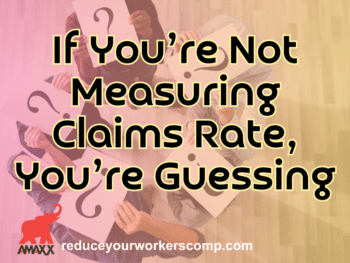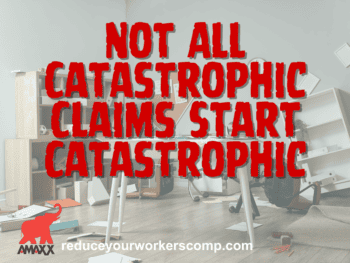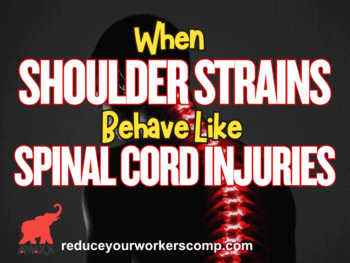
Back to the Basics – “Arising Out Of” and “In the Course and Scope”
Issuing a workers’ comp claim denial requires understanding a basic premise of all workers’ compensation laws – both “arise out of” and “in the course and scope of” the employee’s employment. This is a legal standard that is complex to understand and depends on the facts of each case. When analyzing these threshold standards, it is important to understand the following:
Click Link to Access Free PDF Download
“How Do I Get My Adjusters To Follow My Account Handling Instructions?”
- Arising Out Of: This generally refers to a factual determination of whether the injury occurred within the parameters of one’s direct work In other words, there must be evidence of a causal connection between the injury and the employment. Courts often struggle with issues concerning whether there was an “increased risk” presented by the work environment that is tied to the injury. Factors that are subject to litigation and interpretation include slips/falls on various surfaces (flat hallways, stairwells, ice on sidewalks, etc.), assaults/actions by third persons and idiopathic injuries; and
- Course Of: Determinations regarding this element are more clearly defined, but also create concern and litigation. Generally, this question involves one of the time, place, and circumstances under which the accident/injury occurs. Notwithstanding its appearance, questions of compensability also include litigation when it concerns the hours of employment (breaks, meals and errands), ingress/egress issues and traveling employees.
When considering these issues, it is important for the investigation to involve questions as to specific activities involved and whom else may have been involved in the injury.
Pre-existing Conditions and Questions of Compensability
The presence of a pre-existing condition does not necessarily preclude the compensability of a work-related injury. Given the rather liberal standard of what constitutes a “personal injury,” the better question that needs to be asked is whether the work injury or activity “aggravated or accelerated the underlying condition.” If this is the case, more often than not the claim will ultimately be found to be compensable.
When investigating these matters, obtaining the proper medical evidence is key to any investigation. Areas of concern should include the following:
- Chiropractic care and treatment;
- The existence of prior imaging, including MRIs, CT scans and EMGs; and
- History of athletic or MVA related accidents/injuries.
Notice and Statute of Limitation Defenses
Most workers’ compensation statutes require an employee report their injury promptly. There are also limits as to when an employee can obtain a report from their work injury. This is where it is important to understand how notice and statute of limitation provisions can prevent recovery and serve as a valid legal defense to a claim.
- Notice Defense: An injured worker is under the legal obligation to report their work-related injury in a timely manner. The rationale behind this concept is this allows the defense interests a reasonable amount of time to investigate a claim and prevent the spoliation of evidence. Notice defenses are often not successful given the fact “constructive notice” is often imputed on the employer. It also comes down to a question of credibility of the employee. Notwithstanding these limitations, it is something to consider when defending a claim.
- Statute of Limitation Defense: Once a workers’ compensation injury is reported, there is a time limit place on the employee for them to make a claim for In many instances, the statute of limitation defense is limited to a period of six years. What this means is if the employee reports and injury, but does not incur wage loss or medical benefits within the prescribed time period, they are forever barred from seeking benefits related to the matter. This defense is used to deny claims made on trivial injuries and provides certainty.
Conclusions
Members of the claims management teams are on the front lines when it comes to claims investigations and determinations of primary liability. Issuing a proper workers’ comp claim denial includes determining if the incident falls within the parameters of the workers’ compensation act and other issues of liability. This requires a claims handler understands the law and is able to investigate a claim to make good faith determinations regarding compensability.

Contact: mstack@reduceyourworkerscomp.com.
Workers’ Comp Roundup Blog: https://blog.reduceyourworkerscomp.com/
©2018 Amaxx LLC. All rights reserved under International Copyright Law.
Do not use this information without independent verification. All state laws vary. You should consult with your insurance broker, attorney, or qualified professional.



























